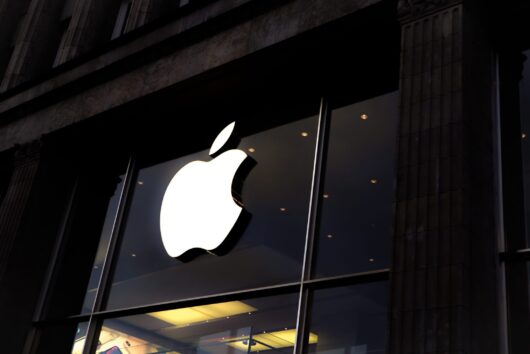Last Week in Review: Institutional Bitcoin investment coming to Asia?

Ethereum’s recent dramatic ascent is capturing the headlines at the moment, but it’s not the only thing taking the crypto world by storm this week. We saw another big institutional bet, more retailers start to accept crypto, and PayPal share news of their Bitcoin success. There’s lots to be bullish about.
Here’s what made headlines this week.
Nexon bets big on Bitcoin with $100m buy
South Korean-Japanese video game company, Nexon Co. announced that it has bought $100 million worth of bitcoin, joining a host of major companies to crypto to their balance sheets.
The Asian gaming giant bought 1,717 BTC at an average price of ~$58,226 each, including fees and expenses. The purchase makes up less than 2% of Nexon’s total cash and cash equivalents and is the largest-ever buy of any crypto made by a company traded in Tokyo.
Owen Mahoney, Nexon’s CEO said in a statement, “Our purchase of bitcoin reflects a disciplined strategy for protecting shareholder value and for maintaining the purchasing power of our cash assets.” He continued, “In the current economic environment, we believe Bitcoin offers long-term stability and liquidity while maintaining the value of our cash for future investments.”
Despite having been an early leader in Bitcoin acceptance, Japan has been relatively slow in catching on the institutional investment trend we’ve seen from global companies like MicroStrategy and Tesla.
With inflation on the rise all over the world, Mahoney said he sees bitcoin as a “form of cash likely to retain its value, even if it is not yet widely-recognised as such.”
PayPal CEO: Crypto demand has exceeded expectations
It’s only been a couple of months since PayPal launched the ability to buy and sell crypto, and user demand on the platform has already surpassed the company’s expectations.
CEO Dan Schulman told TIME Magazine, “Demand on the crypto side has been multiple-fold to what we initially expected. There’s a lot of excitement.” He mentioned his belief that cryptocurrencies are only a part of the wider trend around digitising everyday payments.
Schulman explained that ten years from now, we can expect a “tremendous” decline in the use of cash and credit cards and that financial operations will occur via smartphones through “superapps.”
“When all of those things start to happen, then central banks need to rethink monetary policy as well because you can’t just issue more paper money into the system because people aren’t using paper money,” Schulman explained. He added that this would spark the “advent of digital currencies.”
High transaction fees and slow settlement times that plague today’s traditional financial systems are well on their way to being problems of the past, but companies operating within those realms ought to crack on with modernising their infrastructure or risk becoming irrelevant.
Shulman noted that, “In the next 5 to 10 years, you’re going to see more change in the financial system than you have over the past 10 to 20 years.”
UK and Scandanavian taxis to accept crypto payments on Ethereum
Catching a ride with crypto just became easier for some residents in the UK and Scandinavia. Mobile payments firm HIPS and Nordic taxi payment gateway The Payment House have joined forces to allow cabs in those regions to accept crypto using the Ethereum blockchain.
10,000 taxis in the UK and 20,000 in Scandinavia will be able to use the payment gateway after it debuts in a beta test in November. Initially, the platform will accept HIPS’ Merchant token (MTO), which is issued on Ethereum under its ERC-20 standard, and the USDC stablecoin. According to the announcement, riders can expect support for other cryptos at a later stage.
HIPS CEO John Cavebring said, “We believe that the consumer-oriented features of the MTO are the missing piece for crypto payments to have a market penetration and mass adoption among mainstream consumers.”
He described the system, made up of the HIPS Merchant Protocol, the HMP-gateway platform, and its token as, “a solution that introduces consumer protection concepts from the traditional card payment industry to the Ethereum blockchain.”
Crypto relief campaign raises over $3m for India’s second COVID wave
In the midst of India’s COVID crisis, co-founder of Indian blockchain network Polygon, Sandeep Nailwal announced the launch of a COVID relief campaign to assist the embattled nation in managing its devastating second wave.
Can’t take this sitting down anymore, I am going to run a Covid relief campaign in lieu of what’s going on in India.
Need help from the Global crypto community.
I will take full responsibility for transparency, funds usage and regulatory compliance
If you want to donate.. 1/n
— Sandeep – Polygon(prev Matic Network) (@sandeepnailwal) April 24, 2021
As of the end of last week, his campaign had raised over $3 million in crypto. A $600,000 gift from Ethereum co-founder Vitalik Buterin, as well as other significant donations from crypto venture capitalist Balaji Srinivasan and Hubspot founder Dharmesh Shah, certainly helped bolster Nailwal’s commendable achievement.
Here’s the @gnosisSafe Multisig address to donate in ETH/ERC20 to this address.
0x68A99f89E475a078645f4BAC491360aFe255Dff1
“If you want”, Plz fill this form so we can reach you for more help and specially if needed for regulatory filings.https://t.co/ZzDrBZYC7p
2/n
— Sandeep – Polygon(prev Matic Network) (@sandeepnailwal) April 24, 2021
The donations will be converted into US dollars and distributed to charities to spend on oxygen, food and medical equipment. Inspired by the campaign, India’s largest crypto exchange WazirX announced it would also donate $1.1 million and plans to invite customers to donate through its site.
This isn’t the first time the global crypto community has united in the face of a struggle and we’re sure it won’t be the last. We love to see it!
 Discover
Discover Help Centre
Help Centre Status
Status Company
Company Careers
Careers Press
Press


